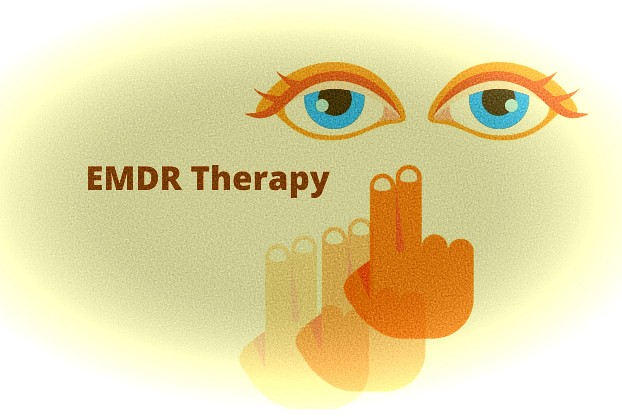In the world of psychotherapy, Eye Movement Desensitization and Reprocessing (EMDR) has emerged as a revolutionary approach to healing emotional wounds. EMDR Psychotherapy, known for its effectiveness in addressing trauma, anxiety, and other mental health concerns, offers a unique path to unlocking emotional healing. In this comprehensive article, we will delve into the world of EMDR therapy, exploring its core principles, techniques, and how it has become increasingly available in India. Let's embark on a transformative journey of understanding EMDR therapy in India and its profound impact on emotional well-being.
Psychotherapy for EMDR is an evidence-based therapeutic approach that was initially developed by Francine Shapiro in the late 1980s. It is particularly renowned for its effectiveness in treating post-traumatic stress disorder (PTSD) and other trauma-related issues. The therapy integrates elements of cognitive-behavioral therapy (CBT) with bilateral stimulation, often in the form of eye movements, tapping, or auditory cues, to facilitate the reprocessing of traumatic memories.The key components of this approach are:
- The Eight Phases: EMDR therapy typically involves eight structured phases that guide clients through processing traumatic memories, identifying negative beliefs, and fostering positive emotions and beliefs.
- Bilateral Stimulation: A central aspect of EMDR involves bilateral stimulation, where the therapist guides the client to move their eyes from side to side or uses other forms of alternating sensory stimulation. This technique is believed to facilitate the brain's natural processing of traumatic memories.
- Dual Awareness: Throughout the therapy, clients maintain dual awareness, where they simultaneously focus on the traumatic memory and the present moment. This helps prevent retraumatization and enhances the processing of distressing emotions.
- Adaptive Information Processing: EMDR therapy aims to facilitate adaptive information processing, allowing the brain to reorganize traumatic memories in a more manageable and less distressing way.
Numerous studies have demonstrated the efficacy of EMDR Psychotherapy in treating trauma-related conditions, such as PTSD, anxiety, depression, and phobias. Its effectiveness extends to diverse populations, including children, adolescents, and adults. EMDR has also shown promising results in addressing non-trauma-related issues, such as performance anxiety, grief, and self-esteem concerns. Below are the benefits of EMDR :
- Rapid Trauma Resolution: EMDR has been lauded for its ability to facilitate rapid trauma resolution, helping clients process distressing memories and emotions more efficiently.
- Reduced Emotional Reactivity: By reprocessing traumatic memories, individuals often experience a significant reduction in emotional reactivity and distress associated with past events.
- Improved Coping Strategies: EMDR empowers clients with improved coping strategies and emotional regulation skills, enhancing their ability to navigate challenging situations.
- Enhanced Self-Understanding: Clients gain a deeper understanding of their emotions and behaviors, leading to increased self-awareness and personal growth.
EMDR Therapy has gained popularity and recognition in recent years in India's mental health landscape. As awareness about trauma and its impact on mental health has grown, more mental health professionals in India have sought specialized training in EMDR. This has resulted in increased availability of EMDR therapy in India for individuals seeking emotional healing and recovery from trauma-related conditions.
In India, trained EMDR therapists follow a standardized process that adheres to the eight-phase approach. Clients undergo a comprehensive assessment to identify trauma-related issues and discuss treatment goals. The therapist guides clients through the reprocessing of traumatic memories using bilateral stimulation, facilitating adaptive information processing.
EMDR Therapy stands as a beacon of hope for individuals seeking to heal from traumatic experiences and emotional wounds. With its evidence-based approach and effectiveness in treating trauma-related conditions, EMDR Psychotherapy offers a transformative path to unlocking emotional healing. As its availability continues to expand in India, more individuals can benefit from this powerful therapeutic approach and embark on a journey towards reclaiming emotional well-being. Through EMDR, individuals can find the courage to confront their past, reprocess traumatic memories, and move forward with resilience, strength, and a renewed sense of emotional freedom.

